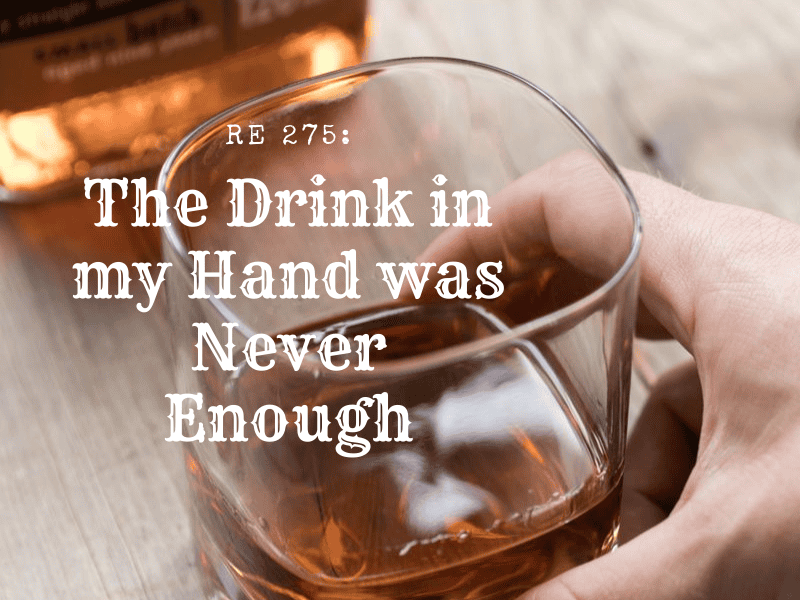
by Paul Churchill | May 25, 2020 | Podcast
Podcast: Play in new window | Download
Subscribe to the Recovery Elevator Podcast Apple Podcasts | | More
Belle took her last drink June 30, 2012. With almost 8 years of sobriety (at the time of recording) this is her story of living alcohol free (AF).
On today’s episode Paul opens discussing what alcohol promises and does not deliver. Many people are trying to fill a void by using alcohol, but it will never be enough. The journey you take and the reward you earn on this life being AF is the eternal knowing that you are enough and are fulfilled.
[7:58] Paul introduces Belle.
Belle is 53 years old, married and lives in Paris, France. She is a caterer.
[11:06] Because of the formal nature of the culture in Paris, is the recovery culture more secluded?
Belle says that because she interacts mostly with English speakers (UK, American, Australia, Canada) her insight into the recovery world in France isn’t that well-informed. But she does state that there isn’t the overindulgent alcohol community that you find other places and in nearby countries. “It’s not socially acceptable to be hammered outside your home.”
[16:58] Why is French onion soup so good in Paris?
It’s situational, exhaustion, dehydration and fantasy of France.
[18:40] Give us a background on your drinking
Belle felt alcohol talking to her around the age of 21. She thought everyone had that voice. For the next 15 years she felt she was keeping drinking in check by only buying what she would drink that day and not have other alcohol in the house. At 36 she was having 3 glasses of wine a night and found it hard to go a night without. Belle began putting into place unconscious moderating techniques to keep in control. She got married in 2005 and having that partner there opened the door to more drinking but with someone else there, so it appeared less harmful.
In March 2012, she tried quitting drinking for 1 month, just to prove that she could. She got 7 days.
[25:59] Can you expand on the feeling you had when you realized it was actually really hard to quit drinking?
Belle says it was embarrassing because there was no one to tell or talk about it with. She didn’t associate herself with alcoholics because of her high bottom drinking. She just thought she lacked self-discipline.
Belle tried again with Dry July in 2012 and on day 9 knew again, this was going to be harder than anticipated. So, she started a WordPress blog to talk about the struggle. People began commenting on her blog posts and she in that moment she wasn’t alone.
From that blog grew her 100-day Sober Challenge, her penpal support system and a business venture.
[39:28] What are some of the lessons you have learned from doing this project?
Belle says everything she’s learned are from her penpals. They taught her that while her story may be unique to her, the core experience of quitting drinking is the same for everyone.
[48:37] Talk to us about the anonymity [of your project] and how you are anonymous.
Belle said that without anonymity she wouldn’t have been able to share the truth. People responded to her approach because it allowed them to also share the truth while being anonymous. Belle believes that you get sober and then you go on with the rest of your life and there exists the life you build on top of being sober. She believes that you don’t have to tell everyone or anyone else about your sobriety.
[52:25] Let’s talk about your book.
Belle’s book is titled Tired of Thinking About Drinking: Take My 100-Day Sober Challenge. Her subscribers wanted her to write a book, so she did.
[52:29] Do you think there will ever be a day you will shed the anonymity?
If Oprah calls and asks Belle to share her experience working with 3000 people, yes. She would probably do that. Otherwise, no.
[56:03] Rapid Fire Round
- What’s a lightbulb moment you’ve had on this journey?
That I’m not alone. And most people have identical experiences.
- What’s your favorite AF drink?
Just tonic or tonic and grapefruit juice.
- What’s your favorite resource in recovery?
Her subscribers.
- What’s on your bucket list in this AF life?
Own a bakery.
- What parting piece of advice can you give to listeners?
It’s in the act of reaching out that things change.
You might need to ditch the booze if…
If you can’t quit drinking for 100 days, then you have a problem. The answer is in the question.
Belle’s website and all the information shared: https://www.tiredofthinkingaboutdrinking.com
Upcoming events, retreats and courses:
- We are into week one of Ditching the Booze – The What, the Why and the How. And will be offering this a few more times coming up. It’s free for Café RE members. Not a Café Re member? Sign up here and use the code OPPORTUNITY for waive the set-up fee.
- You can find more information about our events
The book, Alcohol is SH!T, is out. Pick up your paperback copy on Amazon here! You can get the Audible version here!
This episode sponsored by:
Tiger Tail, use this link and enter the promo code: ELEVATOR15 for 15% off your order.
Resources mentioned in this episode:
Connect with Cafe RE– Use the promo code OPPORTUNITY to waive the set-up fee.
Sobriety Tracker iTunes
Sobriety Tracker Android
Sober Selfies!- Send your Sober Selfie and your Success Story to –info@recoveryelevator.com
“Recovery Elevator – It all starts from the inside out- I love you guys”
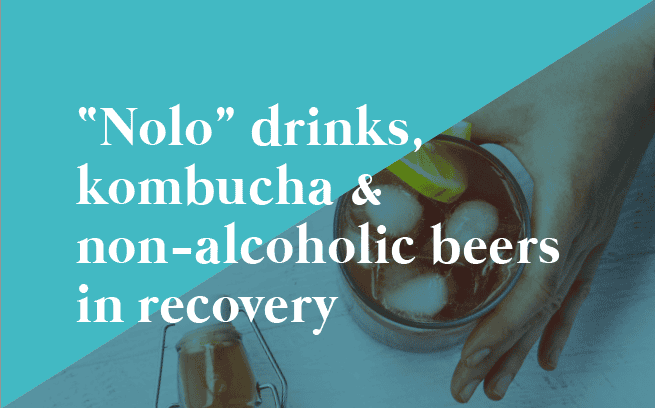
by Paul Churchill | Mar 17, 2020 | Helpful Tips, Resources, The first Year
In this article, I’m going to cover what a “Nolo” drink is, talk about NA (non-alcoholic) beers and kombucha. I’m also going to give my recommendation if you should stay away from these drinks or not since some of them do contain trace amounts of alcohol.
Side note – I feel more influencers, bloggers, podcasters need to cover controversial topics in recovery. Should we avoid NA beers that still contain small amounts of alcohol, does cannabis plays in recovery, and where does plant medicines such as ayahuasca, psilocybin, and ibogaine fit in recovery?
In episode 170, I came out about my experience with ayahuasca despite knowing I would face some intense criticism, which I did. I still feel it’s an incredibly powerful resource, and not sharing it with the audience wouldn’t be true to my mission.
Recently I heard from a blogger in this space who tried ayahuasca for the first time and they said it was the most powerful resource they have come across. I then said, “wow, I’m so happy with you, shoot me the link when you share your experience with the audience, I’m excited to read about it.” They responded with, I don’t have any plans about going public with it. I didn’t answer back, but my inner response was…. Weak. But I get it, I’m sure I’ll get some flack about the position I take with kombucha and non- alcoholic beers.
Speaking of Ayahuasca, I’m hoping to get dates set up for another trip to Rythmia in Costa Rica for later this year or early next. Email me a paul@recoveryelevator.com if you’re interested in joining.
As you may know, I have a book titled Alcohol is Shit, so it may come as a surprise for me to admit, there are some excellent uses for alcohol.
What is alcohol good for?
1. It does have a place in the medical field. It does a great job of killing bacteria and sterilizing things.
2. It’s a highly flammable fuel. It can power a car, a train, or a rocket.
Apart from that, alcohol is shit. People are waking up to the fact alcohol is a class 1 carcinogen, and ingesting the poison can cause significant havoc on internal bodily systems. So a trend is emerging. People are drinking less alcohol. Especially younger folks. Also, consumers are switching to more non or low alcohol content drinks.
People in masses are starting to recognize that alcohol kills 88,000 people per year in just the US alone, causes ulcers, sexual problems, Vitamin B deficiency, apathy, gastritis, malnutrition, nerve damage, liver disease, alcohol poisoning, acute making an ass out of yourself disorder, and a barrage of other things that nobody wants.
People are consuming less alcohol
Sales of no or low alcohol beer (this is where the term “nolo” comes from) is up 30% since 2016. This trend is especially popular with 18-24 year olds. Another fantastic statistic with this age group is that the number of 18-24-year-olds who report they don’t drink at all, increased by 6% last year alone, to 23% in total. Wow, you get a lot of flack millennials, but good on you.
According to the craft brewers’ trade organization, “Nolo” alcohol is set to be one of the driving trends of 2020.
The report is forecasting that no alcohol, low alcohol, and “free-from” beers are set to be one of the fastest-growing parts of the market in 2020, with under 35s choosing low alcohol versions of drinks for a quiet night in or to accompany meals.
Consumers are more conscious of their physical and mental health than ever, and this has driven the fall in alcohol consumption, especially among young people.
Here’s another promising figure – Growth in beer sales is slowing, with total beer sales in 2019 rising by 1.1%, compared with 2.6% growth a year earlier. And The report also indicated a slight increase in the overall number of people who never drink alcohol, with 17% saying they were teetotalers, compared to 16% a year earlier. That’s roughly 3.5 million more people who don’t drink.
I share this with you in hopes of reminding you that you’re not alone. That more people than ever are questioning the role that alcohol is playing in their lives. People are taking addiction seriously and recognize it’s not something that younger people even want to mess with. When millennials say “Yolo” they aren’t including alcohol addiction.
People, just like myself and you, are consciously making the decision to not drink something that will make you less conscious, less alive, and less vibrant. I choose, and I know you do as well, vitality.
NA Beers
Okay, let’s cover non- alcoholic beer. Legally, they can market it as non-alcoholic if it contains less than .5% of alcohol. So, non-alcoholic beer isn’t correct since it contains alcohol. Thank you, FDA. And you might need to ditch the booze if you just calculated how many NA beers you’ll need to drink to relive the glory days. Now, good on you Heineken and UK Based Smashed Lager for making a true 0.0 NA beer.
Now before I give you my opinion, my stance on NA beers, lets first cover why you want to drink an NA beer. Is it the taste? That there are small amounts of alcohol? To blend in? To not be asked why you aren’t drinking? Personally, I never drank beer, wine, or hard liquor for the taste. I drank for effect. I can think of about 74 other drinks that taste significantly better than NA beers, all of which don’t contain alcohol.
Soda water, with a splash of cranberry and a lime wedge, is at the top of the list. Another one is called the “Dustimosa.” You take a couple of sips out of a La Croix, or Buble can, and then fill back up with cranberry, orange, or grapefruit juice.
This is how I treat NA beers. I don’t drink them. Not because I don’t want to flirt with the idea of trace alcohol amounts in my system, but I prefer the taste of other beverages. Now there have been several times when someone hosts a party, and they get me a six-pack of NA beers. Out of generosity, I’ll always have 1. One time, someone got me and my friend, Dusty, he was interviewed in episode 206, Busch NA’s to play flip cup with everyone so we’d feel included.
My stance on NA beers, unless it’s a true 0.0% – stay away. You can find better tasting alternatives, and you don’t want to rattle the cage. It’s not worth it. I once heard a story from a guy who’s wife only allowed him to have NA beers in the house. So each night, he would go into the garage and drink 25-30 NA beers…
Again, my unequivocal stance is, stay away from NA beers that contain trace amounts of alcohol. If you end up having all six beers in under an hour, there’s a good chance you’ll feel it, and crave more.
Kombucha
Now let’s cover kombucha. What is kombucha? And why is it so popular in the US right now? According to Kombucha Brewers International, kombucha is a fermented tea beverage that’s made by adding a symbiotic culture of bacteria and yeast (SCOBY). This solution of tea and sugar produces various compounds, including alcohol and acetic acid, the primary flavor of vinegar.
Kombucha helps support healthy liver function and assists the liver in the detoxification process by making fat-soluble toxins water-soluble. A recent study found recovering alcoholics with higher gut bacteria diversity were more successful at staying sober. There is a strong gut-brain connection, and drinking kombucha strengthens that connection by increasing the number of healthy gut bacteria. 80% of serotonin is created in the gut when healthy gut bacteria and function are present.
I also want to mention, if you had a sandwich or burger for lunch today, you most likely had more alcohol than a Kombucha. Burger rolls have almost 1.3% alcohol, and a ripe banana or pear has about .4% alcohol. How far down do you want to draw this line in the sand?
With kombucha, my take, my stance, my opinion is… Have a kombucha for lunch. Greenlight. But make sure, if you’re at a kombucha brewery, it’s less than .5% or ideally 0.0%. I feel the health benefits outweigh the risks with a kombucha. Plus, for some reason, the thought of chugging 12 kombuchas at lunch makes my stomach stir.
What sometimes sneaks up on me with kombucha is the caffeine. If I have one for dinner, it usually keeps me up at night. So keep that in mind.
To go a little deeper with this article, the overarching problem isn’t alcohol. At first, it is when we are physically addicted. But after it’s been out of the system for a while, it’s about finding healthier ways to regulate inner discomfort without an external substance like wine, beer, spirits sex, shopping gambling, or kombucha. Awareness of what’s happening internally is significantly more important than avoiding kombucha.
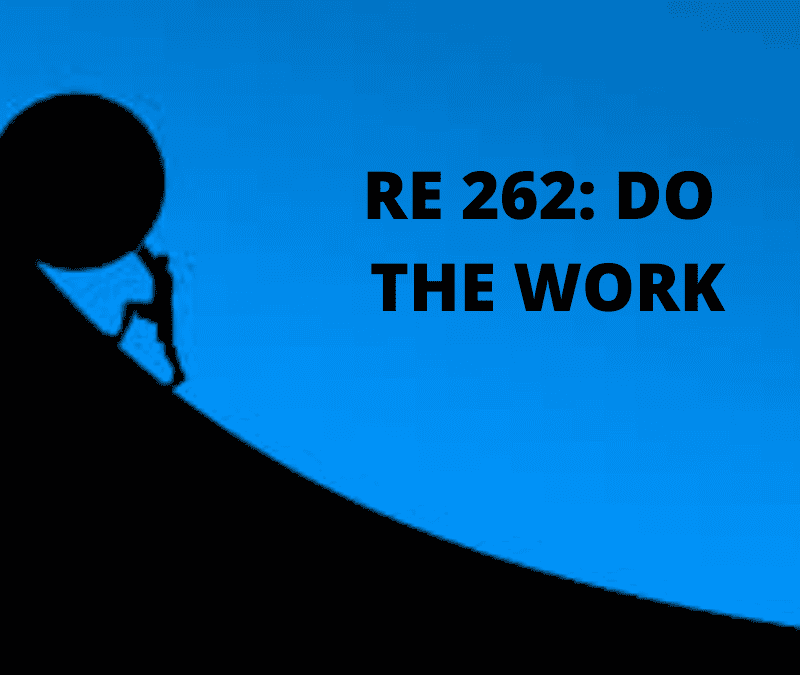
by Paul Churchill | Feb 24, 2020 | Podcast
Podcast: Play in new window | Download
Subscribe to the Recovery Elevator Podcast Apple Podcasts | | More
Vinny took his last drink 9 ½ years ago. This is his story.
On today’s episode Paul talks about change. Whether you like it, or not, you are always changing. You’re either building new circuits or adding new blockages to your energy field. With an addiction it’s either gaining momentum or you’re lessening the energetic bonds of the addiction. You must make time to always do the work.
[15:45] Paul introduces Vinny.
Vinny is 61 years old and lives in Bangkok. For fun Vinny like to read, watch a good TV series, going to meetings and helping people.
[19:20] Give us a background on your drinking.
Vinny discovered alcohol in his late teens and continued to use it for 10 years. The next 10 years involved alcohol and smoking marijuana. He added crack to the mix and became a crack addict for the following 5 years. He went to 2 treatment centers and didn’t get clean until 2004. He hit his bottom while living (homeless) in Las Vegas. He managed to get sober after that and it lasted 3 years.
[22:45] What in your message you want to get out?
Vinny says that recovery can be simple. Simple means it’s not complicated.
[27:13] How can thinking get us into more trouble?
Vinny says that most of us do not think, or see, very clearly. He says we act based on the false evidence we see in front of us, so obviously if we are not relating to reality, we are always going to make the wrong choices.
[30:05] What do you see is the biggest challenge that someone on this journey will face?
Vinny says he thinks that people have the illusion that they have to do it all themselves.
[38:05] What do you think addiction is and where do you think it comes from?
Vinny says he doesn’t know where addiction comes from, and that it doesn’t matter.
[44:00] Talk to us a little bit about self-loathing.
Vinny says self-loathing is shame.
[46:35] Talk to us about burning the ships and being honest with others.
Vinny says that sometimes we are not even aware that we aren’t honest with ourselves.
[52:30] Do you think that someone can become recovered?
Vinny says if you want to use the word recovered in the present moment, yes. If recovered means you are cured, then no.
[54:50] Rapid Fire Round
- What is your favorite alcohol-free drink?
Pepsi-Cola
- What is a memorable moment that a life without alcohol has provided you?
The energy here at my job, on a Saturday afternoon, seeing 30 recovering people connect with each other.
- What’s some of the best advice you’ve ever received?
Don’t take yourself too seriously.
- And what parting piece of guidance can you give to listeners?
Take responsibility for yourself.
You might need to ditch the booze if…
You are a healthcare provider and you are taking care of somebody that needs you, and you have ran out of booze at 3 o’clock in the morning, and you abandon him and go and get booze.
Upcoming Events and Retreats.
Recovery Elevator LIVE: Dancing with the Mind – in Colorado – June 11-14th, 2020
Recovery Elevator in Costa Rica: From Jungle to the Beach – October 8 – 18th, 2020
You can find more information about our events here.
The book, Alcohol is Sh!t, is out. Pick up your paperback copy on Amazon here! You can get the Audible version here!
Resources mentioned in this episode:
ZipRecruiter
This episode is brought to you in support by ZipRecruiter. Right now, my listeners can try ZipRecruiter for free. Visit Ziprecruiter.com/elevator
Connect with Cafe RE– Use the promo code OPPORTUNITY for your first month free
Sobriety Tracker iTunes
Sobriety Tracker Android
Sober Selfies! – Send your Sober Selfie and your Success Story to info@recoveryelevator.com
“Recovery Elevator – It All Starts from the Inside Out. We can do this.”
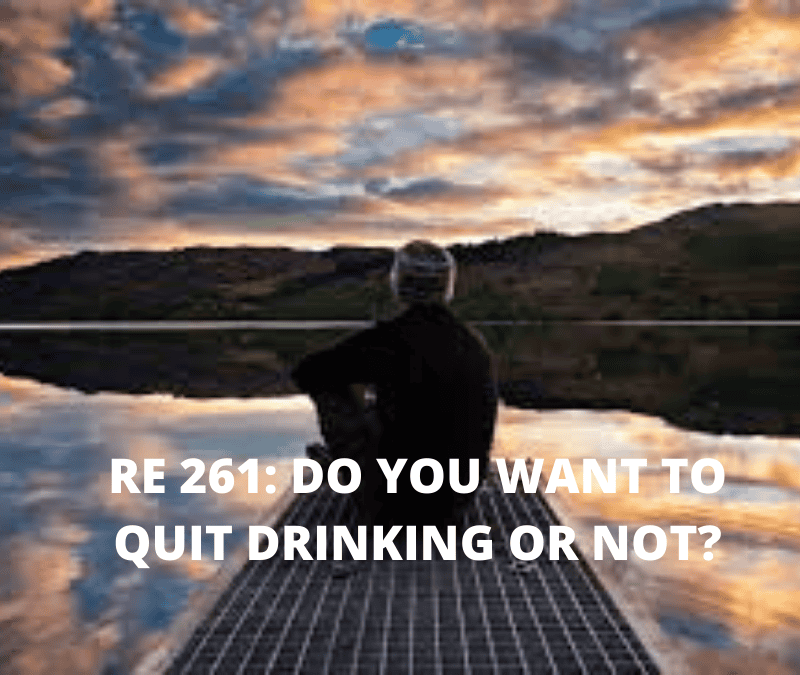
by Paul Churchill | Feb 17, 2020 | Podcast
Podcast: Play in new window | Download
Subscribe to the Recovery Elevator Podcast Apple Podcasts | | More
Sofi took her last drink on April 28, 2014. This is her story.
In today’s episode, Paul talks about tough love. If you are saying you want to quit drinking…but…”you can’t because…fill in the blank ”, or “you can’t because you don’t want to…fill in the blank”, in other words, you want to quit but don’t want to put in the work, well here’s some tough love for you…that doesn’t work.
[11:00] Paul introduces Sofi.
Sofi is 30 years old and it from London. She has 4 older sisters. For fun Sofi enjoys exercise and hanging out in nature while listening to podcasts.
[15:00] Give us a background on your drinking.
Sofi says she has always had an addictive personality. With alcohol Sofi noticed a change around the age of 14. She was at a boarding school so all her drinking took place on the weekends. Sofi says that the wheels came off when she went to university.
Freshman year she was going out every night. By her 2nd year of university, when most of her friends had slowed down, Sofi continued her drinking ways.
Sofi never finished university and at the age of 21 was in her fist rehab. That began a revolving door for the next 4 years…rehab, relapse, rehab, relapse.
[21:00] 13 treatment centers, was there ever a time when you just felt like the next one wasn’t going to work?
Sofi says she liked rehab. She liked that when she was there, she met people that thought like she did.
[25:50] What does ‘you can’t think your way out of this problem’ mean to you?
Sofi said she had learned all the tools in all of her rehab stays, but because she didn’t know how to use them, she kept relapsing and going back. It wasn’t until she had a moment of clarity that it all came together and made sense.
[31:15] Talk to us about what you learned in those first 3 years, and then in the 2 years after that.
Sofi says she was learning to live through the highs and lows during the first 3 years. She also learned, through the AA community, that she wasn’t such a bad person and how to make things right with her family. The biggest thing that Sofi has learned, and is still learning, is that she does not need to punish herself.
[34:05] How do you address self-loathing?
Sofi says she at the place where she accepts herself, most of the time. She tries to treat herself as she would treat someone else.
[36:15] Talk to us a little bit about your experience here at Hope Rehab.
Sofi says it is such a fun environment. Hope Rehab is teaching people how to enjoy life sober. There is a big emphasis on exercise.
[41:15] Rapid Fire Round
- What is a memorable moment, that a life without alcohol, has given you?
Going on holiday with my family again, for the first time sober.
- What is your favorite alcohol-free drink?
Hard to narrow it down, but anything sour.
- What are some of your favorite resources?
It’s easily other people.
- What’s on your bucket list in an alcohol-free life?
I’m living it now, going around the world and seeing as much of it as I can.
- And what parting piece of guidance can you give to listeners?
Stay connected.
You might need to ditch the booze if…
You have started drinking secretly.
Upcoming Events and Retreats.
Recovery Elevator LIVE: Dancing with the Mind – in Colorado – June 11-14th, 2020
Recovery Elevator in Costa Rica: From Jungle to the Beach – October 8 – 18th, 2020
You can find more information about our events here.
The book, Alcohol is Sh!t, is out. Pick up your paperback copy on Amazon here! You can get the Audible version here!
Resources mentioned in this episode:
BetterHelp
hope-rehab-center-thailand.com
Visit betterhelp.com/ELEVATOR and join the over 500,000 people talking charge of their mental health with the help of an experienced professional. Recovery Elevator listeners get 10% off your first month at betterhelp.com/ELEVATOR.
Connect with Cafe RE– Use the promo code OPPORTUNITY for your first month free
Sobriety Tracker iTunes
Sobriety Tracker Android
Sober Selfies! – Send your Sober Selfie and your Success Story to info@recoveryelevator.com
“Recovery Elevator – It All Starts from the Inside Out. We can do this.”
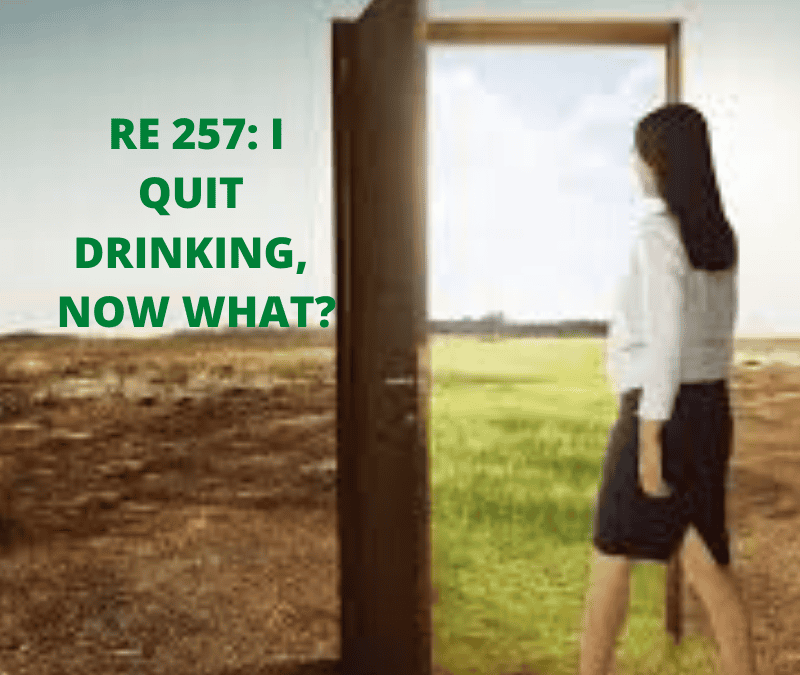
by Paul Churchill | Jan 20, 2020 | Podcast
Podcast: Play in new window | Download
Subscribe to the Recovery Elevator Podcast Apple Podcasts | | More
Bianca took her last drink on October 3, 2018. This is her story.
Update on the Alcohol is Sh!t book! The book is out! Pick up your paperback copy on Amazon here! You can get the Audible version here!
Registration is now open for the 2020’ Recovery Elevator LIVE event, Dancing with the Mind. The event will take place June 11-13 in Denver, CO. You can find more information about our events here.
On today’s episode Paul talks about the process of rediscovering what you like to do, after ditching the booze, and to let it happen organically. He encourages you to engage in activities where you find yourself in a ‘flow state’, or ‘in the zone’. Instead of focusing on new hobbies and fun activities, try to find things where you almost lose yourself.
[7:30] Paul introduces Bianca.
Bianca is 22 years old and is from Austin, TX. She recently graduated from college and is working for a temp agency while she looks for that full time job. Bianca lives with her girlfriend. For fun Bianca spends her time reading and in nature.
[13:40] Give us a background on your drinking.
Bianca didn’t really drink while in high school, but in college she went wild. She tried to moderate during her freshman year by documenting everything she did that involved alcohol. That didn’t work. The following year, 2016, she started doing drugs along with drinking. Bianca does not remember much from her junior year. By the beginning of her senior year (2018) she had a lot of things on her plate and her drinking was still up there.
Bianca says she had a lot of little rock bottoms that finally accumulated into her big rock bottom, which happened on October 3.
[17:40] What happened on October 3?
Bianca and some friends went out to get something to eat. What started out as just one drink escalated to the point that one of her friends took her wallet away from her. They went to a liquor store after that, and Bianca ended up at home, alone, taking shots. She met up with her friends a little later, still sneaking double shots. Bianca stumbled home and after mixing more drugs with the alcohol she passed out. The following morning she woke up hating herself.
[25:00] What was that first month like?
On October 4th Bianca texted the hotline and did what they told her to do, she got rid of her booze and hid her drugs. She says the first few days and nights were tough. She would come home from class and cry. She was having intense nightmares and the shakes. She now feels like she gets a clarity upgrade every 3 months.
[28:10] What was is like getting sober at 22?
Bianca says she actually got sober at 21 and celebrated her 22nd birthday sober. She says it was hard, that there is a big drinking culture in Austin, TX.
[32:00] What was harder, coming out as gay, or as someone with a drinking problem??
Bianca says both were hard. She came out as gay at a very young age. The hard part about telling someone she had a problem with drinking was the shame she felt.
[33:20] What are you working on right now?
Bianca says she is really working on her self-worth and showing up for herself.
[36:20] Have you ever explored why you drank?
Bianca said she has explored that with her therapist. She says growing up her family fell into the victims, of victims, of victims. She wasn’t taught very good coping skills.
[39:20] Rapid Fire Round
- What’s a lightbulb moment you’ve had on this journey?
That I’m responsible for my recovery and nobody else.
- What is a memorable moment that a life without alcohol has given you?
The ability to really feel my emotions and to be surprised.
- What is your favorite alcohol-free drink?
Water.
- What are some of your favorite resources on this journey?
Definitely my sponsor, for sure. Meetings and AA literature.
- What is on your bucket list in an alcohol-free life?
Travel overseas sober.
- And what parting piece of guidance can you give to listeners?
I would tell you all to slow down, as slow as you can go, and to feel your emotions.
You might need to ditch the booze if…
You buy over $200 worth of alcohol and it is confiscated within 3 days by a good friend.
Upcoming Events and Retreats.
Recovery Elevator LIVE: Dancing with the Mind – in Colorado – June 11-14th, 2020
Recovery Elevator in Costa Rica: From Jungle to the Beach – October 8 – 18th, 2020
You can find more information about our events here.
Resources mentioned in this episode:
BetterHelp
Visit betterhelp.com/ELEVATOR and join the over 500,000 people talking charge of their mental health with the help of an experienced professional. Recovery Elevator listeners get 10% off your first month at betterhelp.com/ELEVATOR.
SkillShare
Get two months of premium membership for free at www.shillshare.com/elevator
That’s two whole months of unlimited access to thousands of classes for free.
Connect with Cafe RE– Use the promo code OPPORTUNITY for your first month free
Sobriety Tracker iTunes
Sobriety Tracker Android
Sober Selfies! – Send your Sober Selfie and your Success Story to info@recoveryelevator.com
“Recovery Elevator – It All Starts from the Inside Out. We can do this.”







